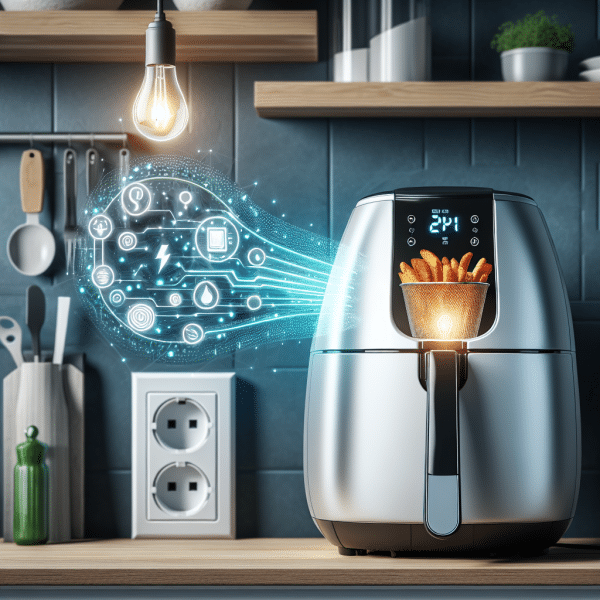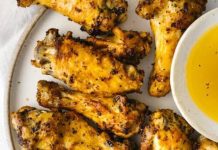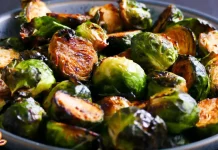In our quest for healthier cooking alternatives, many of us have turned to the wonders of air fryers. These innovative kitchen appliances promise crispy, delicious results with little to no oil. But as we marvel at the magic of air frying, a common question arises: do air fryers use a lot of electricity? In this article, we will explore the energy consumption of air fryers and uncover the truth behind their power usage. Get ready to uncover the secrets of this popular kitchen gadget and understand just how much electricity it really requires.
1. Power Consumption of Air Fryers
When it comes to kitchen appliances, energy efficiency is an important consideration. In this article, we will explore the power consumption of air fryers to understand their energy efficiency rating and wattage compared to other appliances.
1.1 Energy Efficiency Rating
Air fryers have gained immense popularity in recent years due to their ability to cook crispy and delicious food with less oil. One of the factors that contribute to their popularity is their energy efficiency rating. Compared to traditional deep fryers, air fryers consume significantly less energy.
An energy efficiency rating measures the amount of energy an appliance uses to perform its intended function. Air fryers are designed to circulate hot air to cook food, which requires less energy than submerging food in oil. Therefore, air fryers typically have higher energy efficiency ratings compared to deep fryers, making them a more environmentally friendly and cost-effective option.
1.2 Wattage of Air Fryers
Wattage refers to the power consumption of an appliance, measured in watts. When it comes to air fryers, their wattage can vary depending on the model and size.
On average, air fryers have a wattage ranging from 800 watts to 1500 watts. Smaller-sized air fryers usually have lower wattage, while larger models may have higher wattage. It’s important to consider the wattage of an air fryer when purchasing one, as higher wattage can result in faster cooking times but also increased energy consumption.
1.3 Comparison with Other Appliances
To put the power consumption of air fryers into perspective, let’s compare them with other commonly used kitchen appliances.
Compared to conventional ovens, air fryers generally consume less energy. Traditional ovens can use up to 2400 watts, while air fryers typically use around 1500 watts or less. This means that using an air fryer can potentially save energy and reduce your electricity bills.
When compared to microwaves, air fryers tend to have higher wattage. Microwaves usually have wattages in the range of 600 to 1200 watts. While air fryers may consume more energy than microwaves, they offer a different cooking method and can provide a healthier alternative to deep frying.
2. Factors Affecting Energy Usage
Now that we have a basic understanding of the power consumption of air fryers, let’s explore the factors that can affect their energy usage.
2.1 Cooking Time and Temperature
The cooking time and temperature settings you choose can impact the energy efficiency of your air fryer. Higher temperatures or longer cooking times will generally require more energy. It’s important to find a balance between achieving the desired cooking results and minimizing energy consumption.
2.2 Size and Capacity
The size and capacity of your air fryer can also influence its energy usage. Smaller air fryers tend to have lower wattage and consume less energy compared to larger models. Additionally, using an air fryer that matches the size of your meal can help optimize energy usage. Cooking smaller portions in a large air fryer can result in excess energy consumption.
2.3 Cooking Techniques
The specific cooking techniques you employ can impact the energy efficiency of your air fryer. For example, using the air fryer to cook frozen foods directly, without preheating or defrosting, can reduce energy usage. Additionally, using cooking techniques that require less cooking time, such as batch cooking, can help minimize energy consumption.
3. Understanding Energy Consumption
To better understand the energy consumption of air fryers, let’s delve into some specific aspects such as average energy usage, annual operating costs, and standby power consumption.
3.1 Average Energy Usage
The average energy usage of an air fryer can vary depending on factors such as wattage, cooking time, and frequency of use. On average, an air fryer may consume approximately 1.5 to 1.7 kWh (kilowatt-hours) of electricity per hour of usage. However, it’s important to note that this is just an estimate, and actual energy usage may vary.
3.2 Annual Operating Costs
Calculating the annual operating costs of an air fryer can give you a better idea of its long-term energy consumption. To determine the operating costs, you need to consider the wattage of the air fryer, the average usage per week, and the electricity rate in your area.
As an example, let’s assume an air fryer with a wattage of 1500 watts and an average usage of 3 hours per week. If the electricity rate is $0.12 per kWh, the annual operating cost of the air fryer would be approximately $22.50. This calculation can help you make informed decisions regarding the energy efficiency of air fryers.
3.3 Standby Power Consumption
Standby power consumption refers to the energy consumed by an appliance when it is not actively in use but still plugged in. Some air fryers may have a standby mode that keeps them powered on for faster preheating or convenience. However, it’s important to be aware of the standby power consumption and unplug the air fryer when not in use, to save energy and reduce electricity costs.
4. Tips to Reduce Energy Consumption
Now that we have a deeper understanding of the power consumption of air fryers and the factors that can influence it, let’s explore some practical tips to reduce energy consumption.
4.1 Preheating
Preheating an air fryer can be beneficial for achieving optimal cooking results. However, preheating also consumes additional energy. To minimize energy consumption, consider preheating for a shorter duration or skipping it altogether for certain recipes. Experimenting with different cooking techniques can help you find the right balance between energy efficiency and cooking performance.
4.2 Batch Cooking
Batch cooking refers to cooking multiple items or portions at once. Instead of cooking a single meal in several small batches, try to maximize your air fryer’s capacity by cooking larger quantities together. This technique can help reduce the overall cooking time and save energy. Just make sure not to overcrowd the air fryer, as that can affect the cooking results.
4.3 Proper Maintenance
Maintaining your air fryer properly can contribute to its energy efficiency. Regularly cleaning the air fryer, including removing any food debris or grease, can help it operate more efficiently. Additionally, following the manufacturer’s instructions for maintenance and ensuring proper airflow around the appliance can maximize energy usage.
In conclusion, while air fryers do consume electricity, they are generally more energy-efficient than traditional deep fryers and some other kitchen appliances. By understanding the factors affecting energy usage, being mindful of cooking techniques, and implementing energy-saving tips, you can maximize the energy efficiency of your air fryer and enjoy delicious meals with reduced electricity consumption.
































